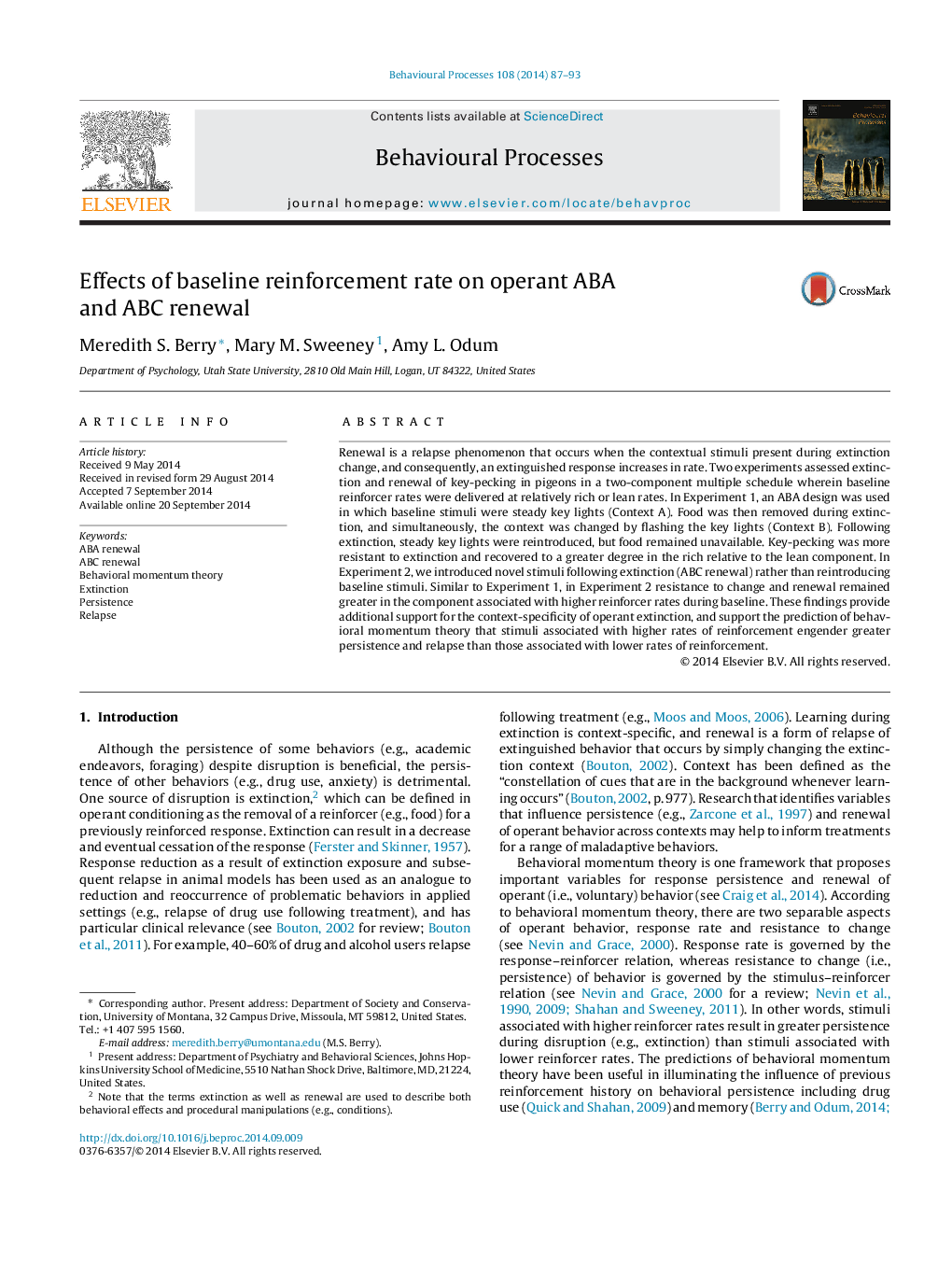| Article ID | Journal | Published Year | Pages | File Type |
|---|---|---|---|---|
| 2426694 | Behavioural Processes | 2014 | 7 Pages |
•We arranged an animal model of human relapse within ABA and ABC renewal paradigms.•Different training contexts were associated with rich or lean reinforcement schedules.•Responding was more resistant to extinction in the rich relative to lean context.•Responding recovered to a greater degree in the rich relative to lean context.•These findings support the predictions of behavioral momentum theory.
Renewal is a relapse phenomenon that occurs when the contextual stimuli present during extinction change, and consequently, an extinguished response increases in rate. Two experiments assessed extinction and renewal of key-pecking in pigeons in a two-component multiple schedule wherein baseline reinforcer rates were delivered at relatively rich or lean rates. In Experiment 1, an ABA design was used in which baseline stimuli were steady key lights (Context A). Food was then removed during extinction, and simultaneously, the context was changed by flashing the key lights (Context B). Following extinction, steady key lights were reintroduced, but food remained unavailable. Key-pecking was more resistant to extinction and recovered to a greater degree in the rich relative to the lean component. In Experiment 2, we introduced novel stimuli following extinction (ABC renewal) rather than reintroducing baseline stimuli. Similar to Experiment 1, in Experiment 2 resistance to change and renewal remained greater in the component associated with higher reinforcer rates during baseline. These findings provide additional support for the context-specificity of operant extinction, and support the prediction of behavioral momentum theory that stimuli associated with higher rates of reinforcement engender greater persistence and relapse than those associated with lower rates of reinforcement.
